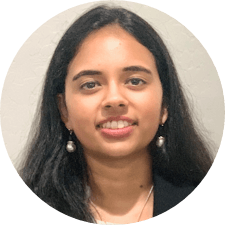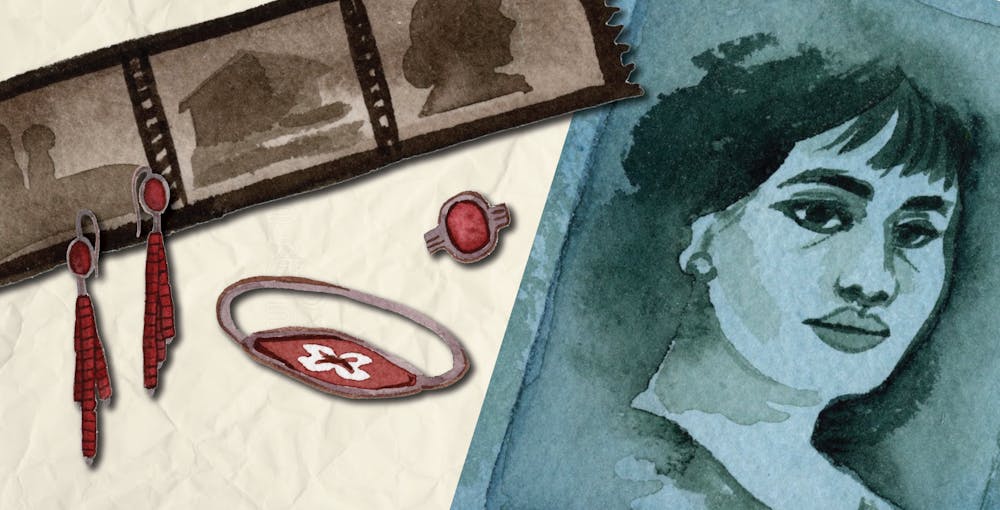When Seonaid Valiant, curator for Latin American Studies at the ASU Library, started at ASU, the collection only had one manuscript.
Now, there are books on magic, biology, art, politics, enslavement and dictatorships with languages spanning Spanish, Portuguese and Indigenous languages, such as Guarani.
ASU Library has curated collections on the history of Latin America and oral histories of Latine immigrants living in the U.S. The result is a dynamic, moving portrait of the Hispanic community.
Collections serve as a way to showcase and celebrate the contributions of past generations and to look at the history of these communities. The Latin Americana Collection combines past histories and modern stories for the larger ASU community to learn about Latin America, Spain and Portugal.
The archives reflect a booming audience as ASU’s Hispanic community continues to grow. From fall 2016 to fall 2020, Hispanic enrollment at ASU for on-campus and online students combined has increased by 51%.
While Valiant said the collection provides resources for ASU Faculty and students to conduct research, the collection is also meant to serve the larger Phoenix community in learning more about the many lived experiences from communities in Latin America.
The culmination of works often require travel. Valiant often retrieves the materials in person, attending book fairs in Latin America to meet the authors.
“If we don't make that effort to acquire those materials, then we're not allowing people to tell us their stories firsthand. And then we don't have any real information,” Valiant said.
Valiant recently acquired the David William Foster Papers for the collection. Foster, who passed away in June 2020, was a professor at the School of International Letters and Cultures and played a key role in building the school’s Spanish and Portuguese language programs.
“He was one of the first professors anywhere to start teaching about gender, to start teaching about lesbian and gay issues,” Valiant said.
During his tenure at ASU, Foster taught classes and wrote extensively about queer theory, gender studies and the arts. Some of his notable works are included in the collection, such as Lesbigay Publishing in Spain and Of Gay Caballeros and Other Noble Heroes.
Zaellotius Wilson, a doctoral student studying design, environments and the arts, used the collection to study Brazilian art and later took on a role cataloging the art collection.
Last semester, Wilson also played a key role in putting together a booklet on the Shoestring Productions exhibit to honor the late Foster. The exhibit showcases artists’ books and woodcuts to tell stories about the life of modern Brazil.
Anatomía, one of the books showcased in the collection, covers human anatomy.The artist created booklets that stitched names into its pages before being covered in red dust resembling blood, Wilson said.
“You get to touch it, and that's something most people forget,” she added. “You can go back to history.”
Czarina Lagarda Lopez, a doctoral student studying Spanish, said the collection helped her study European immigration to Latin America during the 19th century, such as Italian migration to Argentina. The subject hits home for Lagarda Lopez, a native from Hermosillo, Sonora, México.
Photography helped immigrants communicate with their families in Europe at the time, she said. “They wanted to say they were good, they were wealthy.”
She detailed her personal connection with studying these collections; being Mexican, Lagarda Lopez and her family experienced racism and colorism firsthand.
With her personal connection to the archives, Lagarda Lopez highlights the emergence and evolution of racism in Latin America and how it contributes to lived experiences of the different communities in the region.
There are other key collections that highlight Latine and Hispanic History, which include the Chicano/a Research Collection and the Community-Driven Archives.
The Chicano/a Research Collection was first established in 1970 by Christine Marin to preserve and protect Latine history in Arizona and the American Southwest, said Nancy Godoy, an associate archivist of the collection and lead of the Community-Driven Archives Initiative. The collection holds materials that date back to the late 1800s.
Marin, a former history student at ASU, saw there were no courses teaching local Chicano or Latine history at the time. Godoy said Marin also worked at Hayden Library, which compelled her to start a collection of primary resources documenting the history of the local community.
“She would go to a protest and pull a flier off of the wall. She would collect oral history interviews with people. She would work with local organizations to donate their files whether it's meeting minutes or agendas or… correspondence,” Godoy said. “She did that for 40 years.”
Marin retired in 2010, and it has been Godoy’s mission since to continue Marin’s legacy throughout her time at ASU.
When Godoy started in 2012, a statewide survey went out to understand how marginalized communities have been represented in archives.
“98% of collections in local archives repositories represent white Arizona, and so there's a big discrepancy and huge gaps within Arizona's memory,” Godoy said. “We truly wouldn't have any documented Latino history if it wasn't for Dr. Marin.”
The Chicano/a Research Collection includes Franco and French Families Papers, Los Mineros Photographs and Chicanos Por La Causa Records, which can also be accessed online. ASU was “one of the first institutions” to provide English and Spanish translations, archival materials and guides to accompany the archives, Godoy said.
She said one of the topics covered in the collection include Arizona’s relationship with Mexican laborers.
“Arizona was one of the first states to try to unionize undocumented people, Spanish speakers and Latino Mexican laborers who were born here in the United States,” Godoy said.
There are also archives on Latine American and Mexican families who resided in Arizona before it became a state.
Archival collections are “history in the making,” Godoy said. “Community members might be doing something, protesting something. That’s living history.”
Godoy also leads the Community Driven Archives, which originated in 2017. It holds archival collections on several communities of color and underrepresented communities, such as the LGBTQ+ community in Arizona.
Godoy wanted to start this collection to represent unheard voices in the Arizona community.
The archival collection not only offers an opportunity to learn about marginalized communities’ experiences in Arizona but also has hands-on experience in learning how to preserve archives.
“A lot of the work we're trying to do is just show people that ‘hey, you're doing something really amazing,’” Godoy said. “‘Don't forget to save a few fliers.’”
The rise of technology has also made it more accessible and easier to retrieve and view the archives and collections. Lagarda Lopez said technology has brought the archives closer to the people.
“People just think about archives like a room full of boxes with documentation, right? But now the archives' places are different,” Lagarda Lopez said.
ASU has been in the forefront of advancing Hispanic and Latine culture and history through the different archival collections. 31.7% of the population in Arizona identifies as Hispanic, making it ever more crucial in sharing the voices of the Latine community.
Godoy emphasizes the power archives have in educating the public about the challenges underrepresented communities faced in the past and continue to face in the present.
“The lack of archives and the lack of collective memory really leads to communities being dehumanized,” Godoy said.
Reach the diversity officer for the Spring 2022 semester at anatar12@asu.edu or follow @AnushaNat1 on Twitter.
Like State Press Magazine on Facebook and follow @statepressmag on Twitter.





